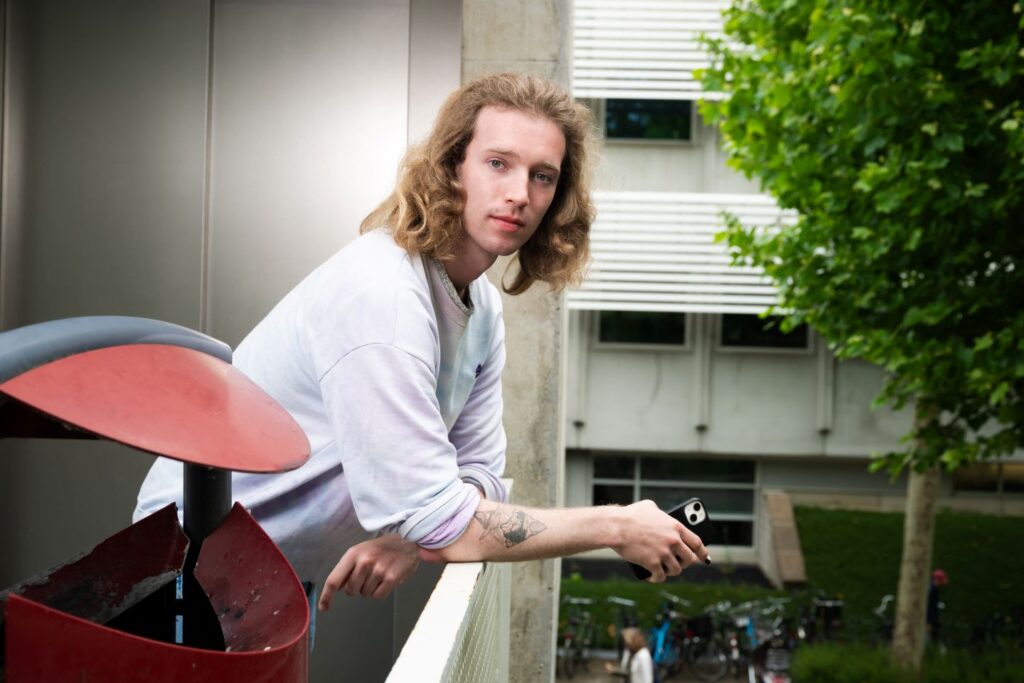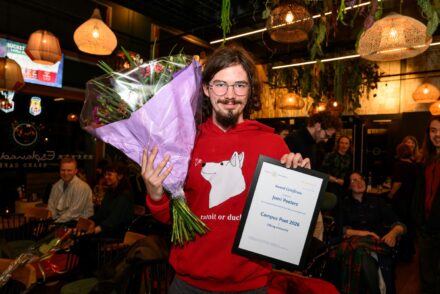Leo Higgins on His Bubble: ‘I Want to Communicate via Carrier Pigeons’
Algorithms shape what we see, hear, and feel online. They can inspire, but also frustrate. In My Bubble, we dive into the digital bubbles of students. This month: Leo Higgins (22), a Liberal Arts and Sciences student at Tilburg University, specializing in cognitive neuroscience.

What stands out to you the most about algorithms?
‘The predatory way they operate. They try to maximize your engagement by showing you content that stimulates your nervous system, but ultimately says nothing. It’s just fluff—useless content meant only to keep you scrolling on social media.
‘The current model is all about engagement and ad revenue, but algorithms have the potential to do good. For example, they can offer helpful information to neurodivergent people. I have ADHD myself, and I was able to seek help more quickly thanks to tips I found online.’
Are you stuck in a filter bubble that mainly confirms your own views? Do you try to break out of it?
‘No, actually the opposite. I keep seeing things I absolutely don’t want to see. No matter how often I report that I don’t want to see certain people or videos, they keep showing up. Andrew Tate, for example—I keep running into him. Every time I think I’ve heard the worst, he somehow tops it. Like when he says women shouldn’t have careers.’
Would you delete your social media accounts?
‘Yes, absolutely. If I could communicate with friends via carrier pigeons, I would. I don’t need to be constantly reachable. But some friends are only on Instagram or Facebook Messenger, so I end up sticking around.’
Have you become more resilient to algorithms?
‘I think so, but not because I consciously changed my behavior. Even when I was younger, I didn’t take social media very seriously. Now I understand more about how it works, but my attitude hasn’t really changed. Social media never had a strong pull on me.’
Do algorithms change the way you watch or listen to content?
‘Not really. I’m curious and I do see a range of opinions, but most of it lacks substance. On Facebook, you mostly get short, superficial content. That’s why I don’t take it seriously.’
Do algorithms affect your online experience positively or negatively?
‘It depends on the platform. YouTube really adds value for me. I’ll watch a two-hour video of an astrophysicist talking about politics in science. That’s fascinating, even if I don’t agree with them. Much better than the simplistic ‘Oh, women huh’ jokes you also see.
‘I can mostly ignore the negativity online. I care too much about my mental health to read the comment section, for instance.’
Do you have a good tip for reducing the influence of algorithms?
‘Turn your phone’s colors off. Seriously, it works. When I did that, my screen time was cut in half. You suddenly realize how many visual stimuli you normally get. When I turn the colors back on, it almost feels nauseating. I saw that tip in a reel—ironically—but it really works.’






